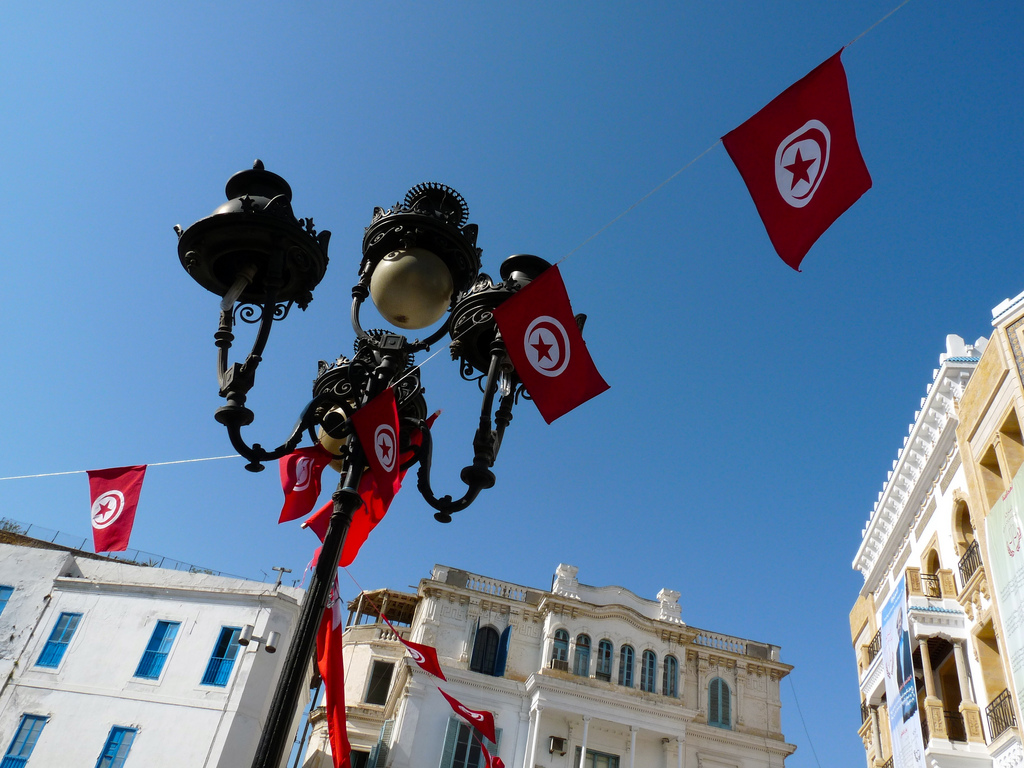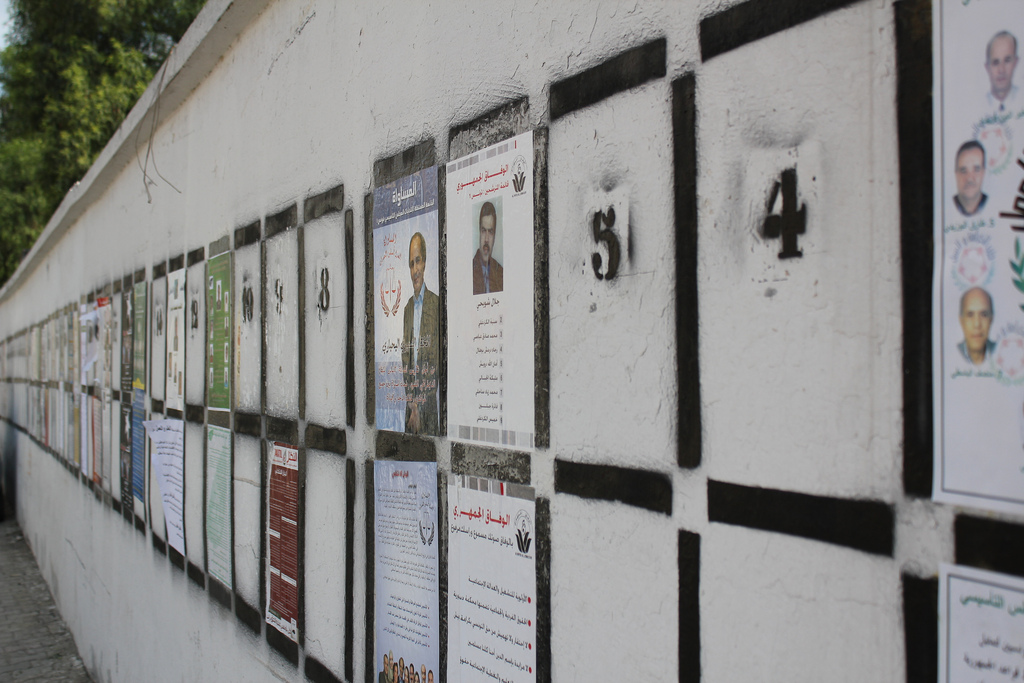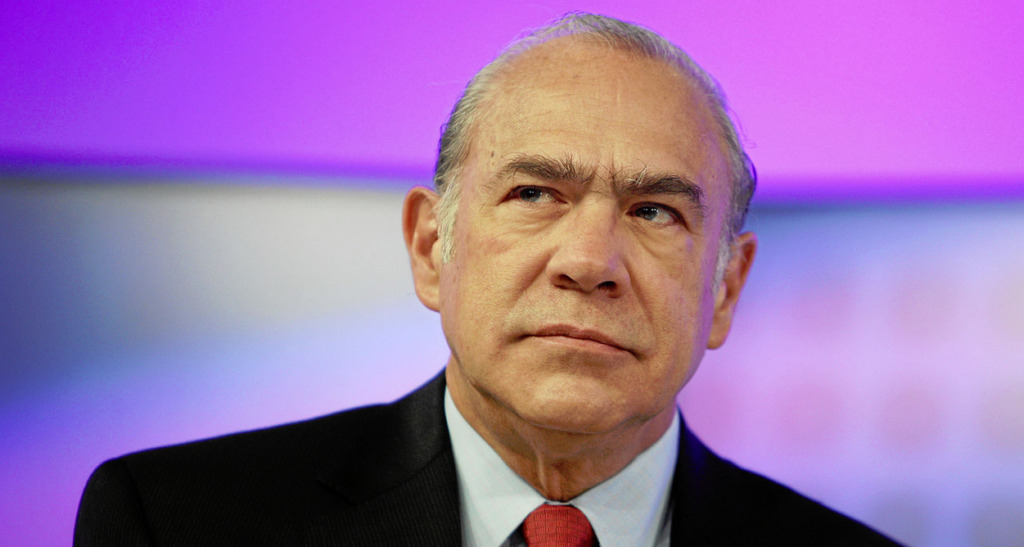
Tunisia will hold parliamentary elections at the end of October. A month later, presidential elections will follow. To see a country in the Middle East preparing to hold democratic elections, particularly in the current climate of regional instability, is nothing short of remarkable. And yet, a cursory Google search of the world’s major news outlets offers few descriptions or analyses of these elections and the Tunisian political parties angling for victory.
The lack of media coverage on these upcoming elections isn’t entirely puzzling—the region is in turmoil. The conflict with IS has, understandably, dominated regional coverage of the Middle East for the past few months. The Syrian civil war is unending. Last year, the Egyptian military pulled off a coup removing their democratically elected president and replacing him with a military general whose impact on Egypt is still unclear. The fact that conflict is currently dominating the Middle East / North Africa region (MENA) unfortunately means that Tunisia’s success – the state’s institutional and psychological capacity to hold what hopefully will be a free and fair democratic election – is greatly overshadowed.
However, the path to these elections hasn’t been easy. Tunisia, like many of the Arab countries in the Middle East, was ruled for decades by an authoritarian leadership that favored capitalist cronyism and suppressed dissention, including the demand for basic human rights. Conditions in Tunisia before 2011 were horrendous for those who were not part of the small circle of profiteers circling the country’s leader, Zine al-Abidine Ben Ali. It took a 26-year old Tunisian fruit seller, Mohamed Boazizi, to self-immolate in protest of the immense injustice of Tunisia’s corrupt society to spread the fervor of revolution to the rest of the country. Within weeks, that fervor had spread all over MENA in what is known as the Arab Spring or the Arab uprisings.
The Arab uprisings began in Tunisia, and the first democratic elections in MENA post-Spring were held in Tunisia just six months after Ben Ali was forced to flee the country. Now, three years after the revolution, Tunisia is also the first of the affected countries to hold what many scholars agree will be free and fair democratic parliamentary elections.
The biggest and most organized political party in Tunisia, and arguably the one that has had the greatest impact on the country’s path to democracy since the uprising three years ago, is the Ennahda Movement (“the Renaissance Movement” in Arabic). Ennahda was the majority party of Tunisia’s first elected government back in 2011. After two years of controversial policies and two assassinations of opposition leaders by Islamist groups, Ennahda faced harsh criticisms that the party had not been able to satisfactorily run the government. As a result, Ennahda voluntarily, albeit with significant political pressure stepped down from its majority seat in the government in January 2014, ceding power to a caretaker government until a new round of elections could be held. Despite Ennahda’s missteps in being able to efficiently govern the country for the first two and a half years of democracy, the party’s willingness to step down from power signaled a significant shift from the authoritarian party politics so common in the region to a more democratic mindset.
The contrast of Ennahda’s action to that of the Egyptian Muslim Brotherhood party, which refused to step down from power and was removed by a military coup, became especially stark. Though the results of both of these cases in Tunisia and Egypt did eventually lead to democratic elections, Egypt’s path has been significantly rockier. Thousands of Muslim Brotherhood supporters have been massacred or jailed and sentenced to death, while the elections back in June yielded 96% of the vote to military leader Al-Sisi – hinting that the elections were not exactly democratic. Meanwhile, Tunisia is prepping for parliamentary and presidential elections – and Ennahda has voluntarily removed itself from the presidential elections in November so as to ensure an inclusive government in Tunisia this time around.
The nature of Ennahda and its decision-making, the rocky but direct path to democracy and constitutional reform that Tunisia has undergone, and the individuals working towards the end goal of the first truly democratically elected Arab government are, when viewed in the context of the rest of the region, clearly something of an anomaly. It is for this reason that, in the coming weeks, the media needs to start paying attention to these elections. Students of the region need to start examining in greater depth and detail the mechanisms that have brought Tunisia to this point. And we should be questioning the democratic process as it unfolds and ensuring that it truly is “as good as it sounds.”

It is the responsibility of the media, academics and global society, which are currently too consumed by the violence occurring in the region, to shift the focus to encouraging events like those in Tunisia. How can the world believe in positive change in the Middle East if all we see of the region is religious fanaticism and ethno-cultural conflicts? And how can those living in the region develop any hope for the future, or any strategies for improvement? How else can regional leaders and political parties understand that working together – not shutting out opposition with violence – is the only way to move forward as a country? Simply focusing more on these elections in Tunisia, and directing some of the attention away from airstrikes on IS, will build much needed global, regional and national confidence in the Middle East. It will encourage those working towards these elections in Tunisia to ensure that the elections truly are as democratic and inclusive as they are advertised. And it will force the leaders, parliaments, parties and people of other Middle Eastern countries to consider how they might best end years of conflict.
It is by observing the successes and failures that Tunisia has experienced in the last few years that other countries will be able to learn about their own systems’ potential for change. True enough, the eyes of Middle East regional specialists will be trained on Tunisia for the next two months, but that’s not good enough. We must look behind us at Tunisia’s past in order to move forward in building security in the Middle East in the future.
The views expressed by the author do not necessarily reflect those of the Glimpse from the Globe staff, editors, or governors.






